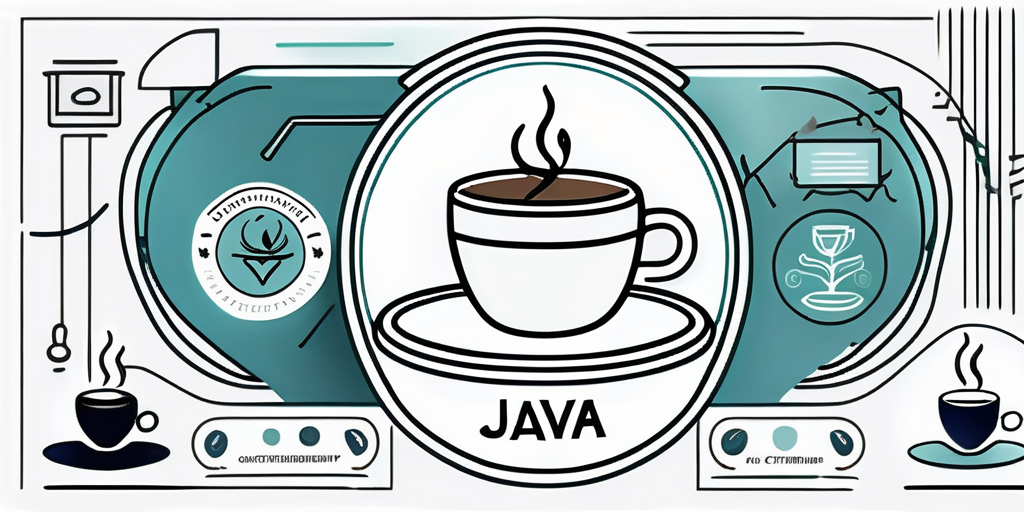
Java programming is one of the most popular programming languages in use today. It is widely used for developing various types of applications and is considered a fundamental language for any aspiring programmer. In this article, we will provide you with a comprehensive guide to starting your career in Java programming. From understanding the basics to building your skills and getting certified, we will cover everything you need to know to become a successful Java developer.
Understanding the Basics of Java Programming
Before diving into Java programming, it is essential to understand what Java is and its key features. Java is a high-level, object-oriented programming language that was first released in 1995 by Sun Microsystems. It is known for its platform independence, as Java programs can run on any device with a Java Virtual Machine (JVM). This makes Java a versatile language that can be used for developing applications across different platforms, including desktop, mobile, and web.

Java was designed to be simple and easy to learn. Its syntax is similar to C and C++, making it accessible to those familiar with these languages. The simplicity of Java lies in its clean and readable code, which allows developers to write programs with fewer lines of code compared to other languages. This simplicity not only makes Java easier to learn but also enhances productivity and reduces the chances of introducing errors.
In addition to its simplicity, Java is also known for its robustness and stability. It has a strong type system, which means that variables must be declared with their specific data types. This helps catch errors at compile-time and prevents unexpected behavior during runtime. Java also has automatic memory management, known as garbage collection, which frees developers from manually managing memory allocation and deallocation. This feature reduces memory leaks and improves the overall stability of Java programs.
Security
One of the key reasons why Java is widely used in the tech industry is its security features. Java’s security model includes sandboxing and bytecode verification. Sandboxing restricts the actions of a Java program, preventing it from accessing resources outside its designated area. Bytecode verification ensures that the Java code is safe to execute by checking for potential security vulnerabilities. These security measures make Java a reliable choice for developing applications that handle sensitive data, such as financial transactions or personal information.
The importance of Java in today’s tech industry cannot be overstated. It is used extensively in enterprise applications, Android app development, big data processing, and even in the Internet of Things (IoT) domain. Java’s versatility and widespread adoption have created a high demand for Java developers in the job market. Having a solid understanding of Java programming opens up numerous career opportunities, whether it’s working for a large corporation, a startup, or even pursuing freelance projects.
In conclusion, Java is a powerful and versatile programming language that offers simplicity, robustness, and security. Its platform independence allows developers to write code once and run it anywhere, making it an ideal choice for cross-platform development. With its widespread adoption and demand in the tech industry, learning Java programming can pave the way for a successful and rewarding career.
Starting Your Journey in Java Programming
Now that you have a basic understanding of Java, let’s start your journey in Java programming. The first step is to familiarize yourself with the Java syntax. Learning the syntax will enable you to write Java code and understand the structure of a Java program. There are plenty of online tutorials, courses, and books available to help you learn the syntax and get hands-on experience with coding.
When diving into Java programming, it’s important to understand that the language is known for its versatility and wide range of applications. From developing desktop applications to building enterprise-level software, Java has proven to be a reliable and powerful language. By mastering Java, you open up a world of possibilities for your career in software development.
Concepts
Next, it is crucial to master object-oriented programming (OOP) concepts. Java is an object-oriented language, which means that it revolves around objects and classes. To develop robust applications, you need to understand concepts such as encapsulation, inheritance, polymorphism, and abstraction. OOP allows you to organize and structure your code, making it more reusable and maintainable.
Understanding OOP concepts not only helps you write cleaner and more efficient code but also enables you to think in terms of objects and their interactions. This mindset is crucial when working on complex projects, as it allows you to break down problems into smaller, more manageable pieces.
Additionally, it is essential to explore the vast array of libraries and frameworks available in the Java ecosystem. Java has a rich collection of libraries, such as the Java Standard Library, that provide pre-built functionality for common tasks. These libraries save you time and effort by offering ready-made solutions to common programming challenges.
Frameworks
Furthermore, frameworks like Spring and Hibernate simplify application development by providing ready-to-use components and tools. Spring, for example, offers features such as dependency injection and aspect-oriented programming, making it easier to build scalable and maintainable applications. Hibernate, on the other hand, simplifies database access by providing an object-relational mapping (ORM) framework.
Familiarizing yourself with these libraries and frameworks will significantly enhance your productivity as a Java developer. They provide a solid foundation for building robust and efficient applications, allowing you to focus on solving business problems rather than reinventing the wheel.
In conclusion, starting your journey in Java programming involves familiarizing yourself with the syntax, mastering object-oriented programming concepts, and exploring the vast array of libraries and frameworks available. By investing time and effort into learning Java, you are equipping yourself with a versatile and in-demand skill set that opens up numerous opportunities in the software development industry.
Building Your Skills in Java
Now that you have a solid foundation in Java programming, it’s time to build your skills and start developing real-world applications. The best way to learn is by doing, so start by developing a simple Java application. This will allow you to practice your coding skills and understand how different components of a Java program interact.

When developing your Java application, consider the various design patterns that can be implemented to improve the structure and maintainability of your code. Design patterns such as Singleton, Factory, and Observer can help you write cleaner and more efficient code.
In addition to coding, it is essential to learn how to debug and test your Java applications. Debugging helps you identify and fix errors in your code, ensuring that your application runs smoothly. Familiarize yourself with debugging tools like breakpoints, watchpoints, and step-by-step execution to effectively troubleshoot issues.
Testing, on the other hand, involves verifying the functionality and performance of your application. Learn about unit testing frameworks like JUnit and TestNG to automate the testing process and ensure that your code meets the expected requirements. Additionally, explore techniques like integration testing and performance testing to validate the behavior and efficiency of your application.
Advanced Concepts
Once you are comfortable with the basics, you can start exploring more advanced concepts in Java programming. This includes topics such as multithreading, network programming, database connectivity, and JavaFX for building graphical user interfaces. These advanced concepts will enable you to develop complex and feature-rich applications.
When diving into multithreading, understand the concepts of concurrency and synchronization to effectively utilize multiple threads in your application. Explore thread pools, locks, and semaphores to manage thread execution and ensure thread safety.
Network programming in Java involves creating client-server applications, where different devices communicate over a network. Learn about socket programming, HTTP protocols, and RESTful APIs to build robust networked applications. Understand concepts like TCP/IP, UDP, and HTTP methods to establish reliable and efficient communication between devices.
Databases
Database connectivity is crucial for many applications. Familiarize yourself with Java Database Connectivity (JDBC) to interact with databases like MySQL, Oracle, or PostgreSQL. Learn how to perform CRUD (Create, Read, Update, Delete) operations and handle transactions to ensure data integrity.
JavaFX is a powerful framework for building graphical user interfaces (GUIs). Explore the various UI components, layouts, and event handling mechanisms provided by JavaFX. Learn how to create responsive and visually appealing interfaces for your applications.
As you continue your journey in Java programming, consider contributing to open-source projects or participating in coding competitions to further enhance your skills. Engaging with the Java community will expose you to different perspectives and best practices, helping you grow as a developer.
Getting Certified in Java Programming
Finally, getting certified in Java programming can boost your career prospects and demonstrate your expertise to potential employers. Java certifications validate your skills and knowledge in different areas of Java programming. They provide a recognized credential that can make you stand out from other candidates during job interviews.

The importance of Java certifications is evident in the industry. Employers often prefer candidates who are certified as it assures them of their proficiency and dedication to the craft. With the rapid growth of technology and the increasing demand for skilled Java programmers. Having a certification can give you a competitive edge in the job market.
One of the most popular Java certifications is the Oracle Certified Professional (OCP) Java SE Programmer. This certification is designed for individuals who have a strong foundation in Java programming and want to demonstrate their advanced skills. By obtaining this certification, you can showcase your ability to develop robust and efficient Java applications.
Certification

Another sought-after certification is the Oracle Certified Master (OCM) Java SE Developer. This certification is targeted towards experienced Java programmers. Who want to validate their expertise in designing and building complex Java applications. With this certification, you can demonstrate your ability to architect and implement enterprise-level Java solutions.
Preparing for Java certification exams requires a combination of theoretical knowledge and practical experience. It is recommended to study the official exam syllabus thoroughly to understand the topics that will be covered. Additionally, using practice tests can help you familiarize yourself with the exam format and identify areas where you need to improve.
Engaging in hands-on coding exercises is also crucial for exam preparation. By applying your knowledge to real-world scenarios. You can develop a deeper understanding of Java programming concepts and enhance your problem-solving skills. Online coding platforms and IDEs provide a convenient environment for practicing coding exercises and experimenting with different Java features.
Conclusion
Furthermore, there are numerous online resources, forums, and study groups available to support your journey towards Java certification. These platforms offer study materials, tutorials, and discussion forums where you can interact with other Java programmers. Collaborating with fellow learners can provide valuable insights and help you overcome challenges during your certification preparation.
In conclusion, starting a career in Java programming can be an exciting and rewarding journey. Understanding the basics, building your skills, and getting certified are key steps to success. By obtaining Java certifications, you can demonstrate your expertise and dedication to the field, making you a desirable candidate for Java programming positions. So, embark on this journey with enthusiasm and passion. And remember, the world of Java programming is waiting for you to make your mark. Happy coding!